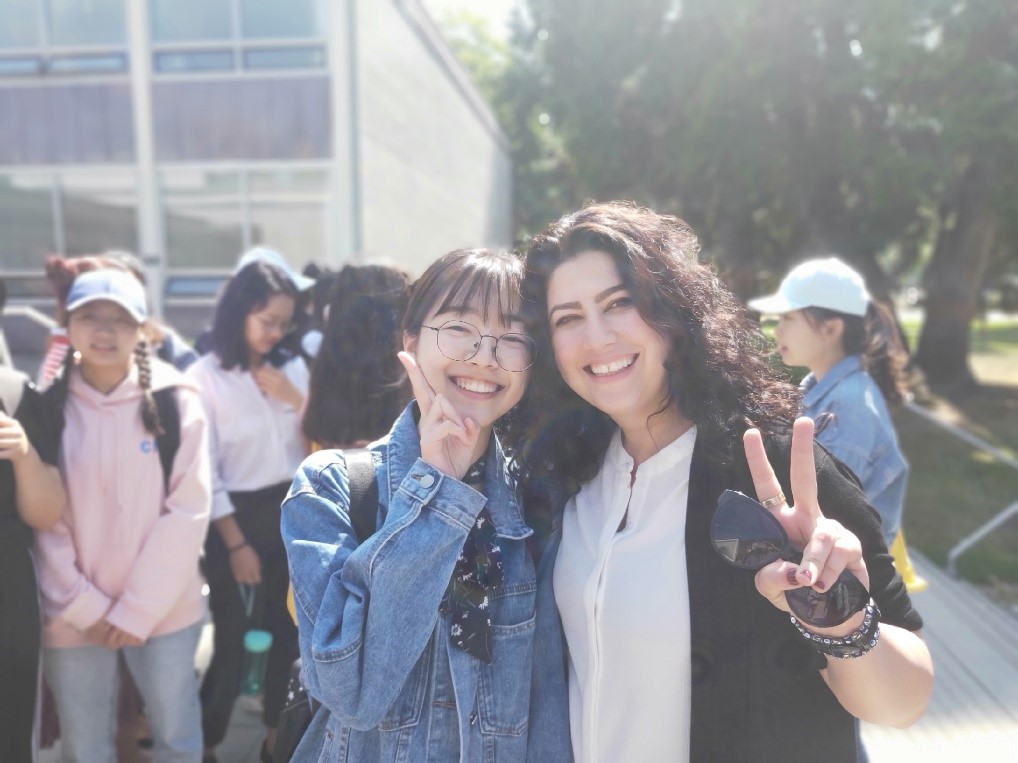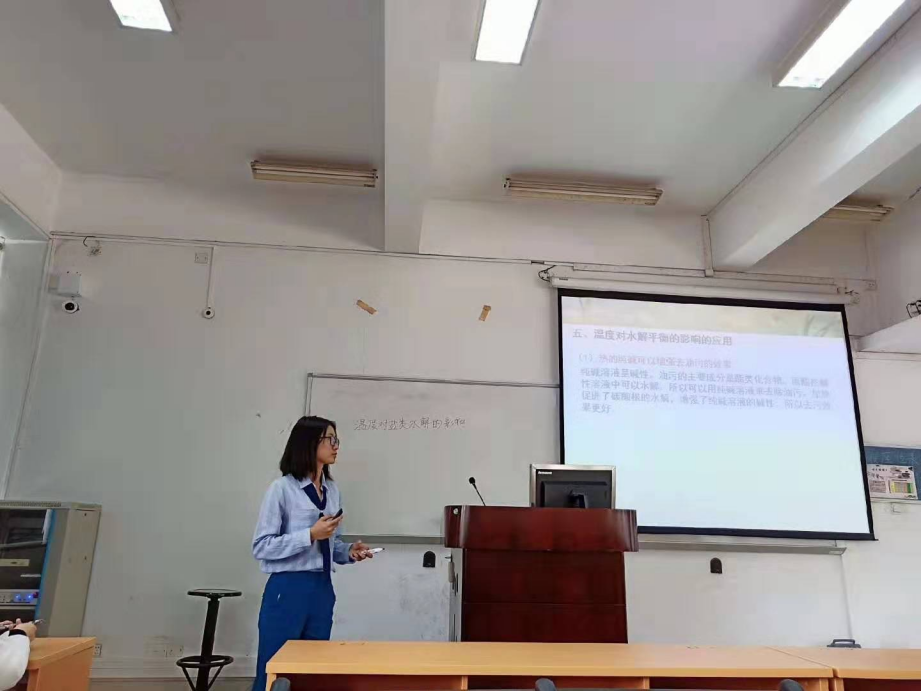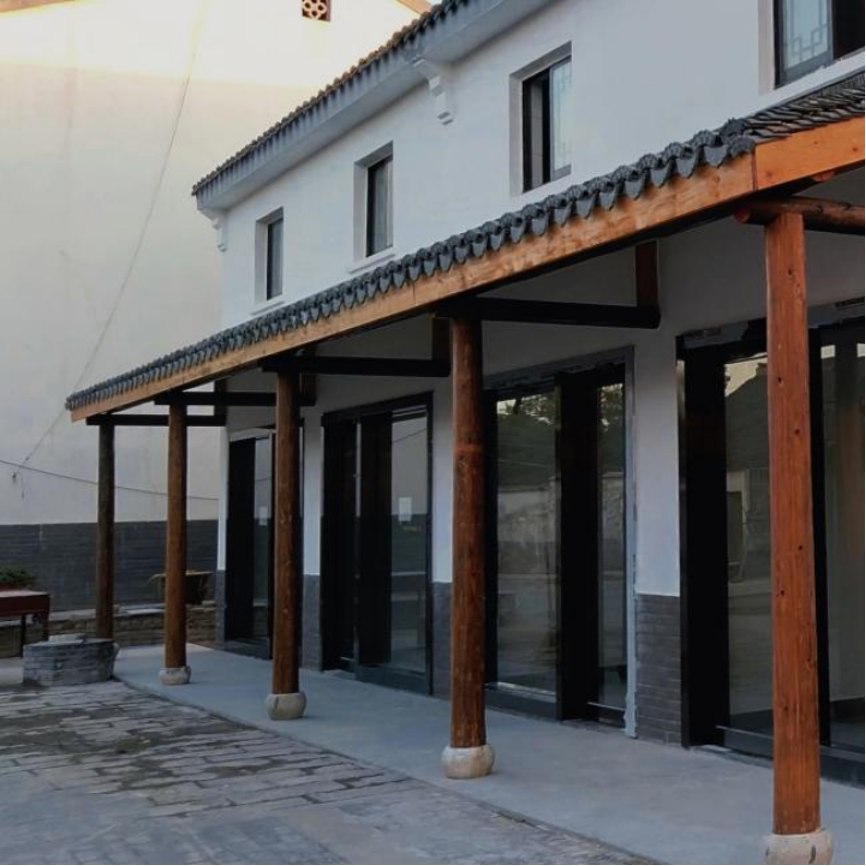
Likes
Editor's Note: The third SCNU English writing contest, themed "Telling China's Story", ended with 422 entries from 33 different schools. We congratulate all prize winners on their outstanding performance. Awarded winners have been announced (see results), and all winning entries will be published in this column.
-------
By Pei Zijun
The village by night, seen in the long distance of time.
In the gaze of the times looking back, I see the village by day.
At this moment the gloom of the night has lifted and I see the village of day clear and bright.
I always recall several nights I sat beside the window, out of which a thinly scattered voice of the river was covered by darkness. Geese leaped into the water and broke the lifeless silence. Several mornings I stood on the high bridge over the river, the handrail covered with condensation and slight mist deeply attached to houses here and there. In every dreamlike day and night, I lived in this familiar village while suddenly, the youths disappear one after another, only leaving the elders standing in front of their houses, gossiping. It seems like time stopped in this tiny village, they were just gossiping, and as time goes by, only left their dilapidated houses drawing monotonous geometry in the sun.
At that time grandma told me that this ancient Jiangnan village, after surviving the wind and snow for many years is now nearing its fated end, in the pace of the time and the times it will soon turn to dust. Hearing her sigh, I just raised my head in confusion and saw the sky faraway blocked by clouds. I later climbed onto the high bridge again and dove into the river, when I came out of the water and shook my head to get rid of the droplets on my hair, just at that time, I seem to understand what grandma had said.
Apart from some incessant quacking of the awakened geese, some sounds which have been engraved in my mind long time ago are gradually weakening, and finally disappeared —— such as the shouts and applause of playmates, as they jumped into the river with me but never came out at all. Looking to the riverbank, those figures kicking the spray with their toes seemed to be surrounded by the fog in the morning, finally also disappeared.
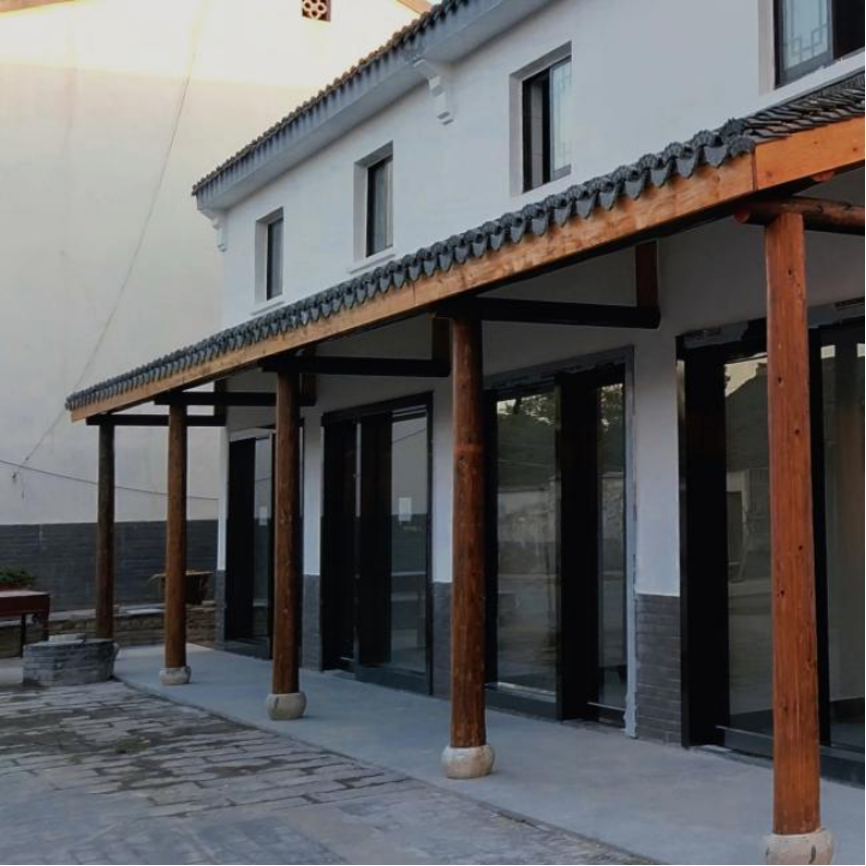
Grandma's house which has been repaired (shot by my auntie Jiangyan).
Longyao lies on the hillside behind and its breath has stopped for a long time. On the side of the road, broken purple clay pots built a high wall, I passed by the piles of fragments and slipped into the kiln yard. The yard was deserted, but it's not totally overgrown so that no one can tread, just keeping crowds thin, and out gradually. The smell of desolation lingers on the roof tiles and beams. I always recall that dusk I sat on the gate of the dead Longyao, gradually understanding, also gradually detecting the faint breath of this Jiangnan village from those fragments of purple clay.
Later, just like other young men living in this village before, I disappeared, and vanished at the end of that potholed stone-pave road. I came to a place, where thousands of human-like creatures like me gathered, we call it "a city". Several nights with the neon lights shining outside my window, I tossed and turned, unable to sleep. I can't stop thinking about the thinly scattered voice of the river covered by darkness.
Several sleepy mornings, seeing thousands of heads commuting on the busy road, I can't stop remembering the houses in that Jiangnan village surrounded by a white mist. I could hear people bored to death with their city life. I could see people lamenting the demise of classical beauty among the city's forested skyscrapers. I could also feel the suffocation brought by their lifestyles which were all in a same key. I then recalled the village with its faint breath. I then remembered the people who had gone to the city without any hesitation, just like me. But in the end, we finally seemed unable to forget her goodness. We drowned in the city and are finally eager to take a deep breath back to village.
So the night of the village began to dissipate and the world gradually saw the light of daytime.
When I returned to that village a few months ago, it was an afternoon when the shadows of the houses in the front row had not yet blocked the sunlight in the back row, where elders were talking. Gone was the air of desolation. Gone were those ramshackle houses. While it is different that under the new rural development policy, people no longer just put their attention on basic hardware construction, they turn to notice and attach great importance to the traditional culture and skills originating from this ancient Jiangnan village.
Young people begin to return to the village and the village begins to return to people's minds. What followed seemed completely different. It is said that the classical buildings and the stone-pave road between them, the Longyao that lied on the hillside, and the purple clay it bred eventually drew more than a few memories and did not eventually disappear with the wind after its faint snort.
I saw the pitted stone-paved road change into a new one. Grandma clapped her hands and said with a smile that it was just like going back to her youth when she never worried about tripping over on the pitted road. The market, which was idle before now has started to become lively again. I saw the old lady living next door standing with her crutch there couldn't stop smiling. The Longyao which still stands on the hillside resumes its spirit. I saw boxes of purple clay pots moved onto trucks at the entrance of the village or to the display cabinet of the brand-new shops in the market.
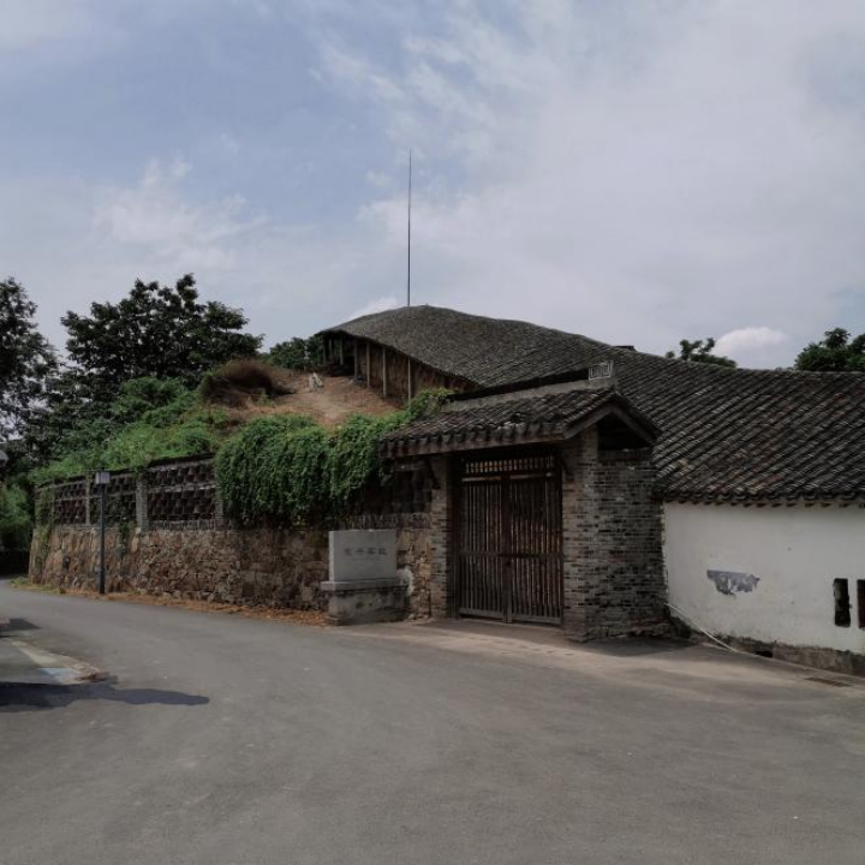
The key-protected object "Longyao" (shot by my auntie Jiangyan)
I then recalled again the forlorn faces of those elders years ago, the furrows on their faces revealing the unconcealed loss of such flavor of culture fading into oblivion. I then recalled the delighted eyes of the neighborhood old ladies when the village finally followed the pace of the times, the corners of their slightly dried eyes unable to hide the relief that the memories and the traditional skills had been passed on. While on the following days, still by the same window, with the thinly scattered voice of the river, but now was already vitality there. I saw the old man who had devoted his whole life to purple clay pot-making, living on the other side of the riverbank. Houses were ablaze with light and I saw youths sitting around the rows of tables. I knew they would continue to perpetuate such a traditional craft also may perhaps give it the lustre of the younger generation.
When morning came, still on the same bridge in the middle of the water, I saw the mist covering the river, while the water below was pounded by oars, and the wooden boats were filled with travelers, perhaps the same as the young people who had fled those villages with faint breath, having spent so much time in the cramped city, always looked forward to returning to the simple and original streets and alleys. It was still in the same village, I saw people come and go, the fire of inheritance dispersing the desolation that had lingered for so long.
I saw a lot, from many years ago to not so long ago. I was amazed to see this village, which was on its last legs in a fast-developing era, was suddenly remembered by our time. In the darkness and depression, people often find it difficult to see ways ahead, while in the midst of hustle and bustle, they are always able to see the brightness faraway. The elders sitting in front of their homes bask in the warm sun, once distressed that their skills would finally end in vain, have now opened their own small workshops, accepting apprentices and teaching the art of purple clay pot-making; among the Longyao which were deserted, the fragments of purple clay on the ground used to sob secretly at the dissipation of tradition, while now people come and go, the flourish of fires and the skills will eventually show a brighter spiritual core under the polishing of time.
I am now sitting again back behind a window in this bustling city with thousands of windows, writing these words and thinking of the Jiangnan village with which my heart is connected, and I just cannot stop praising and being grateful for such a wonderful time and also for the policy of spreading such cultural heritage and development in China at the moment. In such an era of chaos and rapid development, we have finally managed to hold on to a piece of pure land that belongs to us, also to a hometown complex of our own.
The village by night, seen in the long distance of time.
In the gaze of the times looking back, I see the village by day.
At this moment the gloom of the night has lifted and I see the village of day clear and bright.
What to read next:


